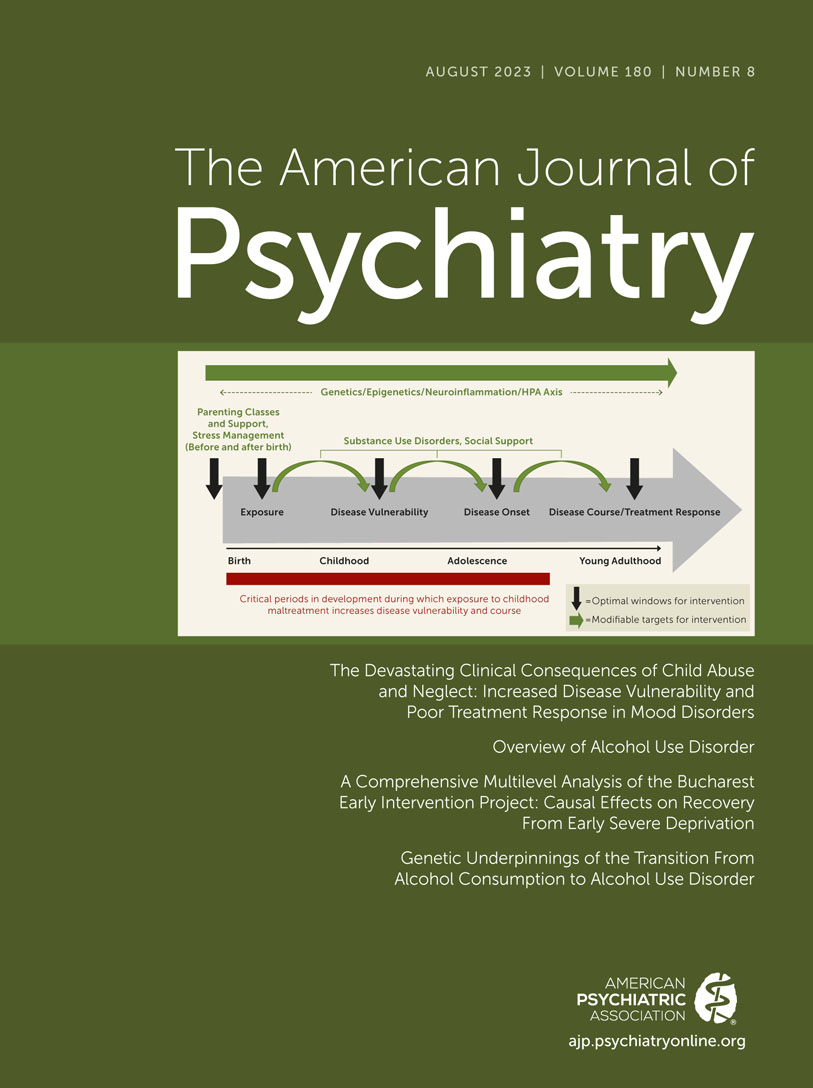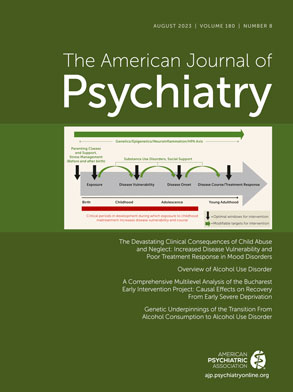Thank you to my medical school attending and amazing teacher, Dr. Kristin Van Zant.
Being up here, on this stage, having just been introduced by a mentor of mine, someone who has had such an impact on my life and career, is an honor that is hard to describe. I am similarly honored by the trust that you, our members, have put in me as the next president of the American Psychiatric Association. I am lucky to succeed some of the very best people that our profession has to offer in this role. Their hard work and dedication have been an inspiration to me personally, and their accomplishments have laid a solid foundation of success for our association, our profession, and our patients, that I intend to build upon.
I want to especially thank my friend Dr. Rebecca Brendel, my Becca as I often call her, for all she has done over the past year as an ambassador for psychiatry and planner-in-chief for our future. I have big shoes to fill.
The theme of this meeting appropriately focuses on innovation, collaboration, and motivation, all qualities that the APA embodies and celebrates to meet the challenges and opportunities of our day. As the W.H.O. declares an end to the global health emergency caused by the COVID-19 pandemic, we find ourselves facing a pandemic of psychiatric problems, particularly among our youth, the LGBTQ+ communities, and minority-underrepresented groups, who continue to be impacted by health care disparities and structural racism.
And yet, we have reason to hope and opportunities that we cannot afford to miss.
The pandemic has caused—or more correctly, accelerated—an awakening among the public to the fundamental importance of mental health and to what psychiatry can offer. Rather than suffer in silence, more and more people are publicly discussing their struggles with mental illness and substance use disorders, in an open and honest way that would have been hard to imagine a few years ago.
There is a chorus of voices calling out for help and understanding of what you and I do every day. We need to respond to this call with leadership in mental health that provides adequate access to excellent care but also goes beyond the assessment, diagnosis, and treatment of psychiatric disorders. Scientists, journalists, politicians, athletes, and performers are asking us to explain, contextualize, and make recommendations for both psychiatric conditions and subdiagnostic psychological distress.
This is an unprecedented opportunity to engage with the public as a profession—as an association, and perhaps most importantly as individuals—about who we are and how we help. And yes, it’s a fantastic opportunity to drive home the point that psychiatric treatments work.
In other words, society has given psychiatry the stage. We have a voice, and we must take every opportunity to make ourselves heard, to demonstrate our expertise, and to show what we can achieve.
Empowering our members to use that voice, directly engaging the public, expanding our workforce, and seizing upon this extraordinary opportunity to capitalize on the world’s newfound awareness of the centrality of mental health in people’s wellbeing will be the essential tasks of my presidential year.
Focusing on a specific topic, I wanted to choose a theme that played to our strengths as a profession, my personal strengths as an addiction psychiatrist, and the APA’s one-of-a-kind ability to affect meaningful change from resolving scientific intricacies in the DSM to testifying before congress during some of the most consequential hearings of our times.
With this in mind, I have chosen “Confronting Addiction, From Prevention to Recovery” as the theme of my presidential year.
Substance use, particularly opioids, has become a generational crisis in our country and one where, until recently, we have seen very little in the way of good news. An increase of 0.6% in overdose deaths in the U.S. was predicted by the National Center for Health Statistics between November 2021 and November 2022. Most likely due to our efforts and those of other physicians, psychologists, social workers, counselors, patient groups, and others too numerous to mention, our April 2023 analysis revealed a 2.8% decrease in reported overdose deaths instead.
Is the tide finally turning? Perhaps, but there is so much more to be done. Public engagement, and collaboration with other medical organizations, the government, and patient groups, are the two pillars of my plan for the addiction theme of my presidential year.
First, I have established a presidential working group, chaired by Dr. Smita Das and including Drs. Tauheed Zaman, Lief Fenno, Jeremy Kidd, and James Sherer that will drive this effort, and assist in the development, review, and promotion of content for quarterly public education campaigns centered around four topics: vaping, opioids, alcohol, and technology. The vaping campaign is already under way due to the speedy mobilization of the communications team at the APA. Thank you, Saul and Bob, for your incredible leadership! We will address opioids in the fall to align with the national recovery month in September, alcohol in the winter months, which include the vulnerable times of the holidays, and in the spring, we will turn to the emerging technological addictions, such as internet gaming, cybersex, social media, texting, and emailing. By the way, other than the people here on stage, is there anyone—anyone!—in this room who has not checked their cell phone during my speech? Please raise your hand. Well, I didn’t think so. Or thank you, thank you!
Our second major effort turns to collaboration. Using the Roadmap for the Future of Psychiatry as our guide, we are convening with allied groups to strategize on how to bring addiction prevention and treatment to the forefront of health care. Last month, I met on Capitol Hill with the Group of Six, the six presidents of the professional organizations for family medicine, internal medicine, OB/GYN, osteopathic medicine, pediatrics, and psychiatry. In July, we will meet with a broader group, at the APA headquarters, in preparation for a major town hall meeting later in the year. A primary aim of this effort is to engage the permanent, administrative staff of these like-minded organizations to optimize our chances for sustainable gains. We don’t want to just move the needle on addiction. We want the needle to keep moving.
Each of us has a story about how we came to our calling as psychiatrists, about how mental health and substance use has touched our lives, directly or indirectly, and why it is we do what we do. I was raised quite literally in a house of medicine, where my father, an internist and asthma specialist, and my mother, a nurse, practiced for five decades. As an undergraduate, I became fascinated with chemistry and during medical school developed a profound appreciation for sociology and the influence of culture and social structures. From molecules to people to policies, psychiatry and addiction psychiatry checked all the boxes. But beyond the scientific satisfaction of our work, it has been the delight in seeing people recover—and in being a psychiatrist—that has been deeply gratifying.
I owe much of my trajectory in my life and career to the love I have received from my family. I want to thank my parents, my brother, and of course, my husband, Lukas, who took a break from playing the villain Elias Van Dyke on NBC’s The Blacklist, to support me and be with us here tonight.
In addition to the staff of the APA, who have already been an invaluable resource to me, I will be relying on you and your support as APA members to advance the objectives of my presidential year. I hope you’ll join me in telling the amazing story of psychiatry and spreading the message of mental health where you live and love and play and work, in any way you can.
We can show our country and the world who psychiatrists are, what we can do, and that a better, more mentally healthy world is possible if each of us does our part.
Thank you.

